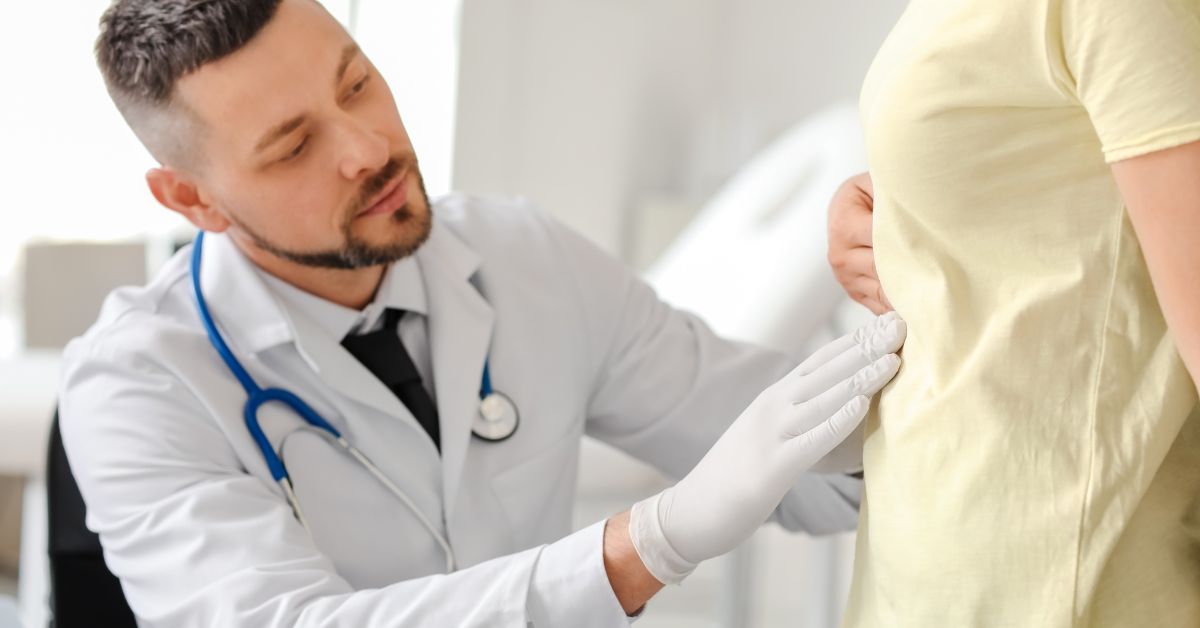Early detection is key for preventing breast cancer
One in eight women will develop breast cancer during her life. However, better prevention and early detection have played a huge role in reducing the number of cases that lead to death. From breast self-exams to 3D mammograms, women now have more control over breast cancer than ever before.
Breast cancer risk factors
Knowing the common risk factors for breast cancer can help you identify your likelihood for developing it. Risk factors for breast cancer include the following:
- Age – The majority of breast cancer cases are diagnosed after age 50, so taking steps to detect cancer early is key as you get older.
- Age at the start of menstruation – Women who start their periods prior to age 12 have longer exposure to hormone, which can increase risk of developing breast cancer.
- Late or no pregnancy – Giving birth for the first time after age 30, or never experiencing a full-term pregnancy, can also increase your likelihood of breast cancer.
- Family history of breast cancer – The number of first-degree relatives (mother, sisters) with breast cancer can be a sign of increased risk.
- History of non-cancerous breast disease – At least one breast biopsy with atypical hyperplasia, or other non-cancerous breast diseases, can also be a strong indicator.
Some other common risk factors starting menopause at age 55 or older, dense breast tissue on a mammogram, use of birth control pills or hormone replacement therapy, a high-fat diet, drinking alcohol, low physical activity, obesity or environmental exposures.
Early detection and preventing breast cancer
Many women with breast cancer don’t have any symptoms. Therefore, prevention and early detection are vital to survival. Here’s what you can do to reduce your risk:
Lifestyle tips to lower your breast cancer risk
- Maintain a healthy weight
- Follow a low-fat diet
- Get regular exercise
- Don’t smoke
- Limit alcohol to two drinks or less per day
Early detection of breast cancer
The survival rate for breast cancer caught early is 98 percent. Detection starts with breast self-exams as early as age 20. You should continue with regular breast cancer screenings as you age. Follow these five steps to detect breast cancer early:
- Know your risk factors
- Perform a monthly breast self-exam
- Have annual clinical exam by your doctor
- Get regular screening mammograms
- Consider genetic testing if you have a family history of breast cancer
Breast self-exam
Breast self-exams help you know what’s normal for you and empower you to detect the early signs of cancer. Having some lumps is natural. While it’s best to begin doing a monthly breast self-exam in your early 20s, it’s never too late to start.
Clinical breast exam
A clinical breast exam is an exam of your breasts by a health expert. In your 20s and 30s, you should get a clinical breast exam from your gynecologist or your primary care doctor every three years. After age 40, a clinical breast exam should be a part of your yearly physical.
Mammogram
A mammogram is an X-ray picture of the breast. It is the best way to detect breast cancer in its earliest, most treatable stage. Mercy Health is equipped with the most advanced breast imaging technology including digital mammography, breast ultrasound and breast MRI to discover health issues, before they become problems.
For more on the importance of preventative breast care, watch this video of one of a breast cancer survivor discussing the importance of regularly scheduled mammograms.
Genetic testing/counseling
Genetic testing is an option for women who are concerned that they may have the likelihood to develop breast cancer. The genetic test analyzes your DNA to look for a gene mutation, usually BRCA1 or BRCA2, that may raise your risk for developing the disease. Some of our Mercy Health locations offer genetic testing and comprehensive genetic counseling by a certified genetic counselor.
Visit Mercy Health today to schedule a clinical breast screening or mammogram to make sure that you are taking every step possible to detect breast cancer early.






